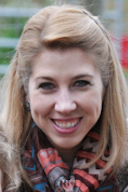How well are we preparing today’s students for the data-driven future and how will you support the data demands—scientific practices, core ideas, and cross-cutting concepts of the NGSS?
Seminar & Workshop: Supporting NGSS Implementation
For all High School Science Teachers, Curriculum Directors, administrators, and Department Chairs to support your Next Generation Science Standards (NGSS) implementation! REGISTER BY OCTOBER 13, 2017.
This workshop is a continuation of our featured scientist series held in the spring of 2017 and our EBEC initiative “Improving the STEM Pipeline.” Attendance at previous sessions is not required! Rhode Island, Massachusetts, and Connecticut Educators are invited!
Learn how this session will work to foster data literacy in your classrooms, Grades 9-12, using the free Ocean Tracks program developed by EDC in Waltham, MA, and Stanford University, with support from the National Science Foundation, in this unique partnership with the East Bay Educational Collaborative of Rhode Island.
The quantity of data created globally from scientific sensors from digital media, and all other sources is staggering. Today’s students will graduate into a world where big data is available to influence and drive decision-making. Nearly half of the high school NGSS Performance Expectations for Science Practices, Core Ideas, and Cross-Cutting Concepts directly reference data use in one form or another.
Participants please bring your laptop or tablet if available.
When: Monday, October 23, 2017
8:00 AM to 2:45 PM
Where: EBEC
317 Market St.
Warren, R.I.
Complimentary luncheon and free classroom NGSS activities/materials will be provided!

Dr. Erin Bardar is the Senior Curriculum/Instructional Design Associate EDC’s Oceans of Data Institute. Erin is a widely published author and specializes in science curriculum development, professional development, and educational research. She also has a special focus on developing engaging instructional resources to foster student data literacy and transforming science education. She is project director and curriculum team lead for the Real World, Real Science project, a NASA-funded collaboration with the Gulf of Maine Research Institute (GMRI) designed to bridge informal and formal learning around climate, weather, and data literacy. Her articles have appeared in such periodicals as Astronomy Education Review, The Earth Scientist, Journal of Geoscience Education, and Bulletin of the American Astronomical Society. She frequently presents her work at national conferences, including Games+Learning+Society and the American Association of Physics Teachers.